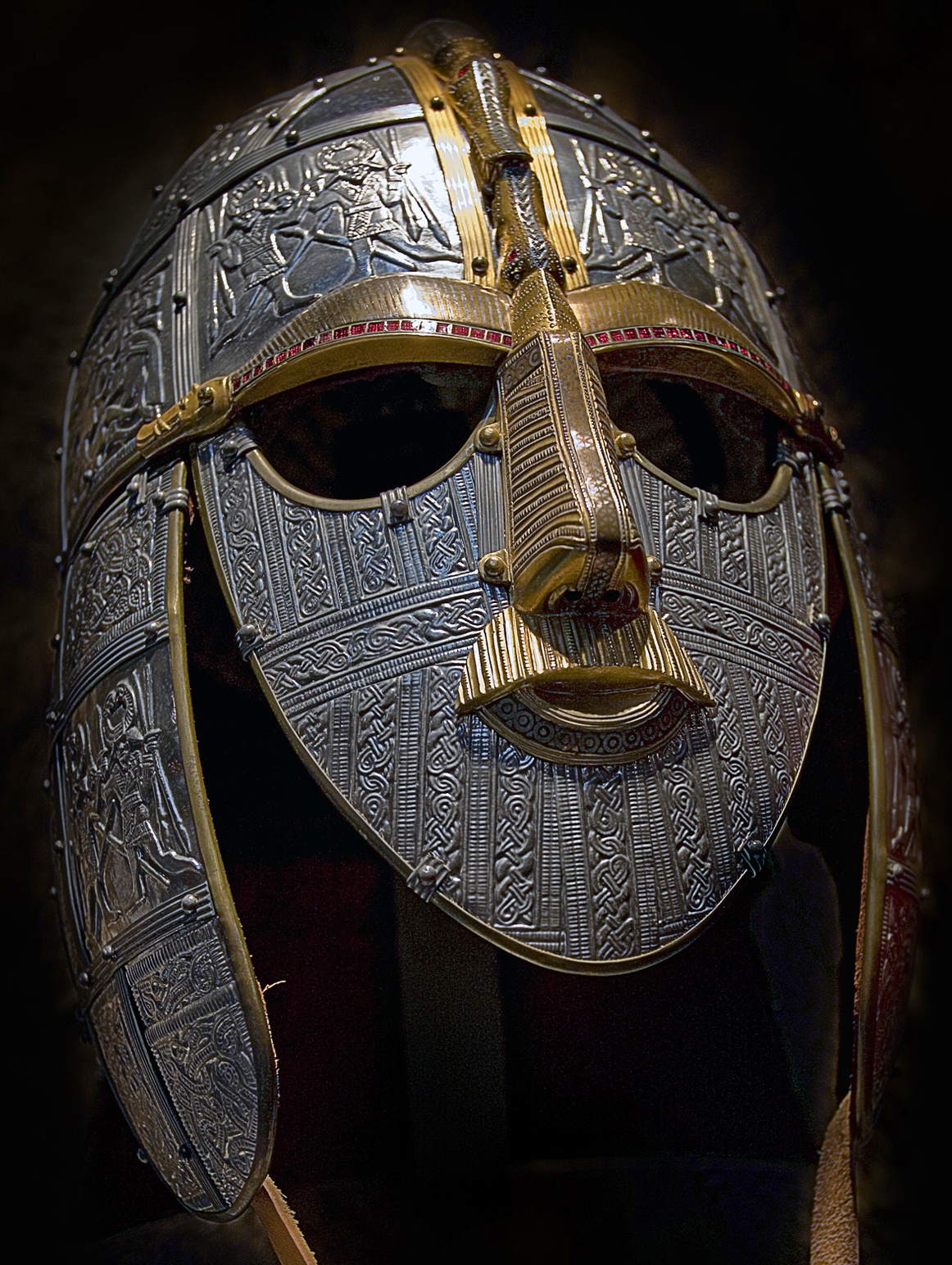
Newsletter
Yes! Send me my FREE short story collection and sign me up for those exclusive subscriber goodies!
We value your privacy, and will never spam you! View our privacy policy at lasmithwriter.com/privacy

Yes! Send me my FREE short story collection and sign me up for those exclusive subscriber goodies!
We value your privacy, and will never spam you! View our privacy policy at lasmithwriter.com/privacy
One of the joys of writing about any period of history is discovering some of the fascinating people who lived at that time, at least some of the ones whose stories have come to us through the long years that separate us. Of course, they are usually kings or high churchmen, or upper class nobles, or the like. The regular people, although no doubt fascinating in and of themselves, don’t get any ink.
I have highlighted a couple of the people who lived during the time that my books are set, that being Britain in the 7th century A.D., including Oswald, King of Bernicia, and the Venerable Bede.
Penda, the wily king of Mercia, the powerful pagan king of the Midlands who was a thorn in the side of Oswald and his brother Oswy in their rule of Northumbria, is another figure who looms large over the 7th century landscape, and he is a fascinating man. Although there is quite a lot we know about him, relative to others in that time period, there is also quite a lot we do not know.

Mercia was located on the south west of Deira, surrounding the river Trent. It’s capital was Tamworth, which is located in present-day Staffordshire. The marvellous Staffordshire Hoard was found close to Tamworth – it could have come from a Mercian warlord hastily burying his treasure as he escaped from a battle. Maybe it belonged to Penda himself…?
First of all, his origins are rather murky. The name, Penda, could be of British (Welsh) origin, which might help to explain the various alliances this pagan Saxon king had with some the Christian kings of Wales. Conversely, the name might also have Germanic origins. We don’t know for certain. We do know that he was the son of Pybba, possibly one of twelve sons, but some of the names listed as sons of Pybba could have been added to his line after the fact by other kings purporting to be descended of Pybba as well.
Why would other kings do this? Well, Pybba was an Iclingas, from the House of Icel, a legendary (or perhaps semi-legendary) figure from the time when the Anglo-Saxons were first migrating to Britain after the Roman legions left. And Icel’s lineage went right back to Woden, one of the Saxon gods. Having Woden in your lineage was an important thing for the Saxon kings. So if your own family history couldn’t be traced that far back, it would be in your advantage to claim that you were related somehow to someone who certainly could, and in that way gain legitimacy for your kingship. And after a few generations had passed, who was going to dispute the claim?
Penda, being a legitimate son of Pybba, definitely had the credentials, then, to be king, but interestingly enough there is some doubt about how and when he actually gained the throne. The king just before Penda, Cearl, is another murky figure, who might have been a dynastic rival of Penda’s, but at any rate he seems to be off the scene by 626 A.D..
You will note that I haven’t given the date for Penda’s birth. That’s because we don’t know what it was. The Anglo-Saxon Chronicle says that he became king in 626 A.D. and ruled for thirty years, and was fifty at the time he became king. However these dates need to be taken with a grain of salt, because that would make him in his eighties when some of his children were still quite young, so that’s not really likely. Most historians prefer Bede’s dates in the Ecclesiastical History of Britain, which states that Penda became king in 633 A.D., after he and Cadwallon of Gwynedd combined forces to defeat Edwin of Northumbria in the Battle of Hatfield Chase.
Murky, like I said. It seems to me more likely that he was a younger man in 633 A.D. rather than an older one. Some suggest that perhaps the Chronicle meant that he was actually fifty when he died in 655 A.D., not when he gained the throne. And as for what happened between 626 and 633 in Mercia in terms of who was the ruler, well, it’s unknown. Penda could have been one of multiple rulers of Mercia, each being overlord of a small portion of it.
It is also possible that Penda was a landless noble of the royal Mercian house, a mercenary of sorts, who, with his loyal war band, managed to fight his way onto the throne, basically. There is no doubt he was a powerful king. Once crowned he managed to hold onto his throne for twenty-two years (if you agree with Bede), and that is a long time by the standards of the day.
He is also a pivotal figure in British history as he is the last pagan king of Mercia. It is perhaps a bit of an exaggeration to say that when he died, the pagan Saxon religion died with him, but certainly by the time of his death Christianity was well-established in the island and the writing was certainly on the wall.
Throughout his reign he did what successful Saxon kings did best: made war on his neighbours in order to expand his kingdom and have more tribute to distribute to his loyal retainers. There is a suggestion that he could have been a co-ruler with his brother Eowa for the early part of his reign, who may or may not have been a puppet of Oswald of Northumbria (the mind boggles at all the scheming and plotting that must have occupied their days).

Replica of the beautiful reconstruction of the Sutton Hoo helmet, done by the Royal Armouries for the British Museum. This helmet is from Wessex, not Mercia, but it is contemporary to Penda’s time and he might have worn a helmet quite like it. Photo from Wikicommons
At any rate he quickly became a force to be reckoned with, and some suggest that it was his burgeoning power that prompted Oswald to take him out, so to speak. Which didn’t turn out so well for Oswald, for Penda (and his Welsh allies) killed the powerful bretwalda (High King) at the battle of Maserfield and, adding insult to injury, cut up his body and impaled his head, arms and hands on spears.
This was certainly insulting, but it is possible that it also was a sacrificial offering to the pagan Saxon gods. Eventually one of Oswald’s arms and his head managed to get back to Bernicia, where they became powerful relics of the Church, but that is another story!
Although the Northumbrians had lost Oswald, their powerful king, they were not out of the picture by any means. Certainly the united kingdom of Northumbria broke back down into its two sub-kingdoms of Deira and Bernicia, and Oswy, Oswald’s brother who gained the Bernician throne, had to start the work of trying to gain the thegns and aethelings trust and respect in order for him to reach the same heights of power his brother had achieved.
Penda would not make it easy for him, of course. The prize of overlordship of all of Mercia and Northumbria was an irresistible one for Penda and Oswy both, and these two kings tangled frequently over the next decade. There were some periods of calm, and even an alliance or two involving their children, and once Penda had Oswy on the ropes, laying siege to Bamburgh itself.
But in the end, Oswy had the upper hand, defeating and killing Penda in 655 when Penda invaded Bernicia, even though Penda’s army was much larger than his own.
Penda was a quintessetial Saxon warrior-king, who managed to carve out a stable kingdom in the chaos of 7th century Britain. He must have had some charisma and some leadership skills, plus his skill as a warrior, in order for him to stay on the throne that long.
And even though the uncertain details of his origins and his rule are frustrating for historians, I don’t mind it much as a novelist. It gives me freedom to spin my own story of this Dark Ages king who was a worthy adversary to Oswy, the king who features in my books.
Featured image: Stained glass window in the cloister of Worcester Cathedral representing the death of Penda of Mercia. From Wikicommons.